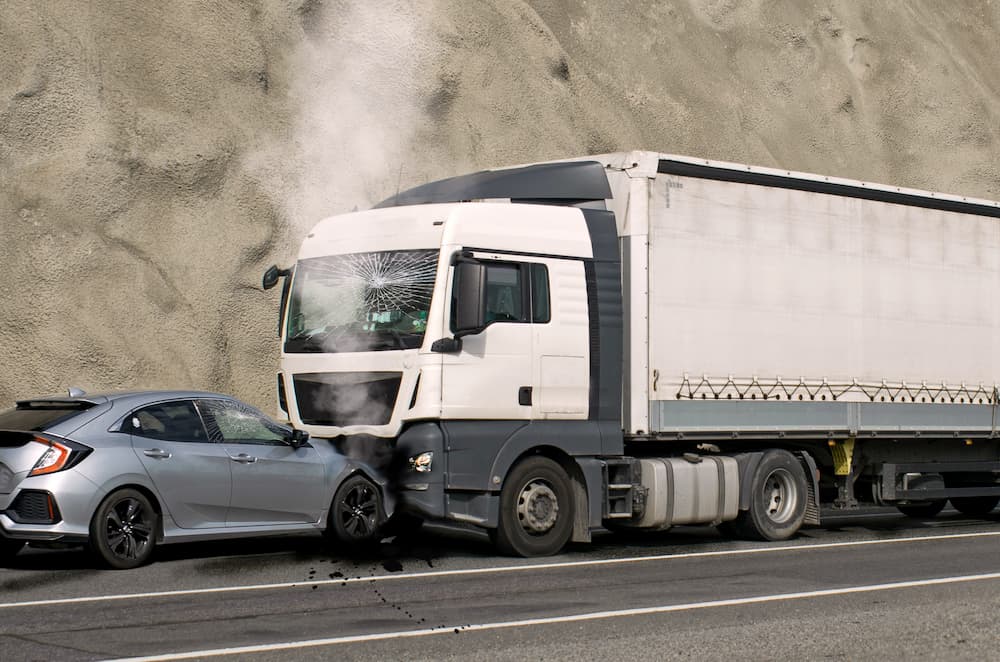- What is a BOP insurance policy?
- What's included in business owner’s policy coverage?
- What isn't covered by business owner’s insurance?
- Benefits of business owner’s policy insurance
- How much does a business owner’s policy cost?
- Companies that offer business owner’s policy insurance
- How to lower the cost of a business owner’s policy
- How does a BOP work?
- What types of businesses are eligible for a business owner’s policy?
- Business owner’s policy requirements
- How to get business owner’s policy coverage
- Frequently Asked Questions
What is a BOP insurance policy?
A BOP is a type of small business insurance policy that combines protection for the financial loss you would experience from an interruption to your operations, damage to your commercial property or equipment, or an injury to a third party for which the business is at fault.
“A business owner’s policy, BOP, is essential for small businesses because it is often the first and most important insurance product a new or growing business can obtain,” says Paul Spelman, senior vice president of underwriting management for business insurance company Hiscox. “BOP products deliver a healthy balance of coverage, simplicity and cost.”
This broad range of coverage in one convenient package typically comes at a lower cost than buying separate policies to protect your business. You can also include riders that provide additional protection, which you can tailor to your unique needs.
Insight: The best way to lower BOP costs is to reduce the risk of filing a claim. Some ways to lower your risk include investing in security system monitoring, minimizing hazards in the workplace and implementing a safety and training plan.
What's included in business owner’s policy coverage?
Business owner’s policy coverage includes the following coverages:
- General liability insurance pays if you or your employees cause personal injury or property damage to a third party.
- Commercial property insurance protects your commercial buildings or office space and its contents, including inventory and equipment.
- Business interruption insurance, also known as business income insurance, covers the loss of business income as a direct result of a covered event that interrupts your operations.
What isn't covered by business owner’s insurance?
A business owner’s policy doesn’t cover your employees, business vehicles or professional liability. You’ll usually need to buy separate coverage for disability insurance, health insurance, worker’s compensation, professional liability insurance and commercial auto.
That said, some insurers offer optional endorsements you can use to tailor your business owner’s policy to meet your specific needs.
“With customizable options, small business owners can get the specific coverage they need to protect themselves, allowing them to confidently focus on what they do best – running their business,” Spelman says.
Additional endorsement to consider in your business owner's policy
Some examples of additional coverage you can include in your BOP are:
- Data breach coverage
- Equipment breakdown insurance
- Cyber liability insurance
- Commercial auto insurance
- Professional liability for errors and omissions (E&O) insurance
- Contractors’ equipment coverage
- Hired and non-owned auto coverage
- Employee dishonesty coverage
- Computer fraud insurance
- Employee benefits liability (EBL) insurance
- Commercial crime coverage
- Equipment and tools coverage
- Food spoilage coverage
Benefits of business owner’s policy insurance
You’ve worked hard to build your small business, but one claim could wipe out all your hard work and destroy your livelihood. The right commercial insurance coverage, such as BOP insurance, can protect your business against various claims. Here are a few examples of how it works.
Scenario 1: Fire
A fire destroys your retail floral shop, temporarily shutting down your business. Luckily, it was after hours, so none of your employees were present. Unfortunately, rent and paychecks will still come due while you wait for the building to be rebuilt.
Solution: A BOP can cover the building restoration, replacing equipment and supplies and lost business income so you can continue to pay your rent and employees.
Scenario 2: Client injury
While a potential client is in your office reviewing your architectural designs, the client accidentally trips over a copy machine plug, falls and breaks an arm.
Solution: General liability insurance will pay for their medical expenses, lost wages and legal fees if you are sued.
Scenario 3: Property damage
You own a small construction company and while on the jobsite, one of your employees loses control of a piece of equipment, damaging part of the building they were working on.
Solution: Your BOP insurance policy will cover the damage to the building and equipment, plus legal expenses if you get sued.
How much does a business owner’s policy cost?
As mentioned above, Insureon puts the average cost of a business owner’s policy at $57 a month. But what you pay will most likely be higher or lower.
“The cost of a BOP varies based on many factors, including the business’s size, industry, location and coverage limits needed,” Spelman says.
Higher-risk industries, or those likely to file more claims, typically pay more for commercial insurance, while lower-risk industries usually pay less.
For instance, food and beverage companies pay an average of $1,770 a year while professional services firms pay $570, according to Insureon.
| High-risk industries | Low-risk industries |
|---|---|
|
|
Based on industry data and monthly BOP costs from Insureon
The price of BOP insurance also varies by location. For instance, according to Insureon:
- The average price for a business owner’s policy in California is $711 a year.
- The average price for a business owner’s policy in Texas is $877 a year.
- The average price for a business owner’s policy in Florida is $916 a year.
- The average price for a business owner’s policy in New York is $896 a year.
- The average price for a business owner’s policy in Pennsylvania is $743 a year.
But one of the biggest determinants in what you’ll pay is the insurance company you choose. Here are examples of what the average small business owner pays for BOP insurance from various insurers:
- The Hartford: $85 per month
- Hiscox: Starts at $41.67 per month
- Progressive: $113 per month
- Thimble: $108 per month
Getting quotes from different companies to compare coverages, availability of optional add-ons and cost can ensure you get the best price on the coverage you need to protect your company.
Companies that offer business owner’s policy insurance
In addition to the insurers listed above, many other commercial insurance companies offer business owner’s policies, including:
- Chubb
- Nationwide
- Next Insurance
- State Farm
- Travelers
How to lower the cost of a business owner’s policy
The best way to lower your BOP insurance costs is to reduce the risk of filing a claim. There are several ways to do so:
- Improve workplace safety. Create a formal safety and training plan to reduce accidents and injuries on the job. Regular training helps employees stay aware of hazards and follow best practices.
- Invest in security systems. Installing security cameras, alarm systems, and 24/7 monitoring can reduce the risk of theft or vandalism and may help lower your insurance premium.
- Minimize on-site hazards. Keep your workspace clean and well-maintained to prevent slips, trips, and other common risks that could lead to a claim.
- Ask about discounts. Insurance companies often offer savings for things like paying your premium in full, bundling policies, or maintaining a claims-free history. Be sure to ask your agent or broker which discounts you may qualify for.
- Bundle your coverage. Buying more than one commercial policy, such as general liability and commercial auto, from the same insurer could earn you a multi-policy discount.
- Choose a higher deductible. Opting for a higher deductible can reduce your premium because you’re taking on more financial responsibility in the event of a claim. Just make sure you can afford to cover it if needed.
How does a BOP work?
A business owner’s policy works just like other insurance.
You buy a policy from an insurer, pay your premiums and, if your property is damaged, your operation is temporarily shut down or someone is hurt on site, the insurance company will cover those injuries and damages up to the coverage limits of the policy.
What types of businesses are eligible for a business owner’s policy?
BOPs can cover many business industries, including wholesale, retail, office, service and manufacturing. A business owner’s policy is ideal for small and medium-sized businesses with a physical location, no more than 100 employees, annual revenue up to $5 million and equipment or property to protect – including private customer data.
Here are a few businesses that should consider a BOP:
- Retail stores
- Real estate
- Distributors and wholesalers
- Technology services
- Automotive services and garages
- Service businesses
- Financial services
- Associations and clubs
- Artisan contractors
- Healthcare
- Food services
- Personal care services
- Pet care services
- Publishers and printers
- Cultural and religious organizations
Business owner’s policy requirements
There are no federal or state requirements for BOP coverage.
Business owner’s insurance typically provides a minimum of $1 million per occurrence for a single claim and $2 million aggregate, or over the policy’s lifetime, which is typically 12 months.
How to get business owner’s policy coverage
Follow these steps to get enough business owner’s policy coverage to protect your hard work and livelihood:
- Assess your risk. Think about what could cause damage to your business, such as natural disasters, accidents, employee errors and lawsuits. Do you own business property that could be at risk of damage, like buildings, tools, office equipment and inventory? Can you afford the legal defense fees if someone sues your company?
- Get quotes. Get a business owner’s insurance quote from several companies to compare coverages, rates, deductibles and additional options.
- Choose an insurance company. After gathering quotes, review them to choose the best company and policy for your business. It’s also a good idea to evaluate each company’s policy management tools, financial strength, customer satisfaction scores and available discounts.
- Buy the policy. Once you select the best company, it’s time to purchase a BOP policy. Some of the best commercial insurance companies have the option to purchase policies online, but you may have to go through an agent to complete the transaction.
Working with an experienced independent insurance agent makes the process easier. They can help you assess and evaluate your risk, answer your questions, gather and compare quotes and choose which company fits your specific needs.
Frequently Asked Questions
Can I customize my BOP insurance?
Yes, you can customize a BOP insurance policy to meet your unique business needs. Additional coverage options vary by insurance company, but some optional BOP coverages include cyber liability, advertising and personal injury, equipment breakdown, employment practices liability, workers’ compensation, accounts receivable, employee dishonesty, errors and omissions (E&O), commercial auto and commercial liability umbrella coverage.
Does a BOP cover natural disasters?
Yes, but what is covered depends on your policy’s terms and endorsements. In general, commercial property insurance coverage in a BOP policy usually covers damage from natural disasters such as hurricanes, wind, tornadoes, lightning and hail. However, standard policies don’t cover floods and earthquakes. You will need an endorsement or separate policy.
Is a business owner’s policy required by law?
No. However, if your business has employees, you’re usually required to have workers’ compensation, disability and unemployment insurance for your employees. A BOP is optional. Business owners should evaluate their risk to determine if they need a business owner’s policy, which combines coverage for commercial property, general liability, and loss of business income.
Do BOPs have a coinsurance requirement?
Yes, a business owner's policy may include a coinsurance requirement, typically for your business property insurance coverage. A coinsurance requirement obliges the policyholder to insure their property for a certain percentage of the total value, often ranging from 80% to 100%. If you choose to insure your property for less and you file a claim, your payout may be reduced proportionally, even if the claim is for less than your total coverage amount.
For example, if your business property insurance requires 90% coinsurance and your office building is worth $500,000, you must carry at least $450,000 in coverage.






